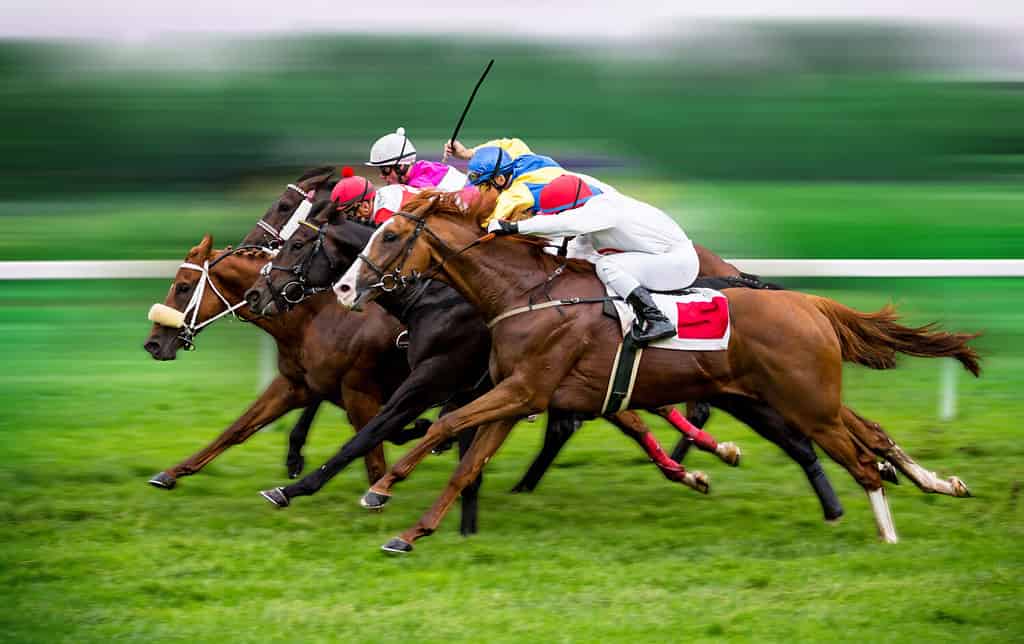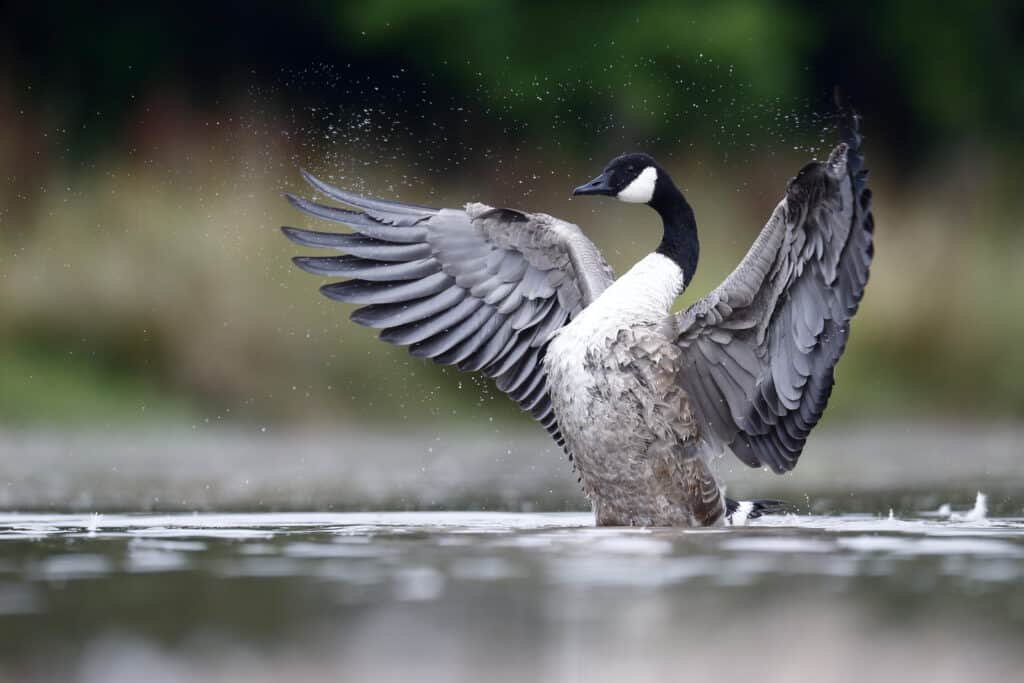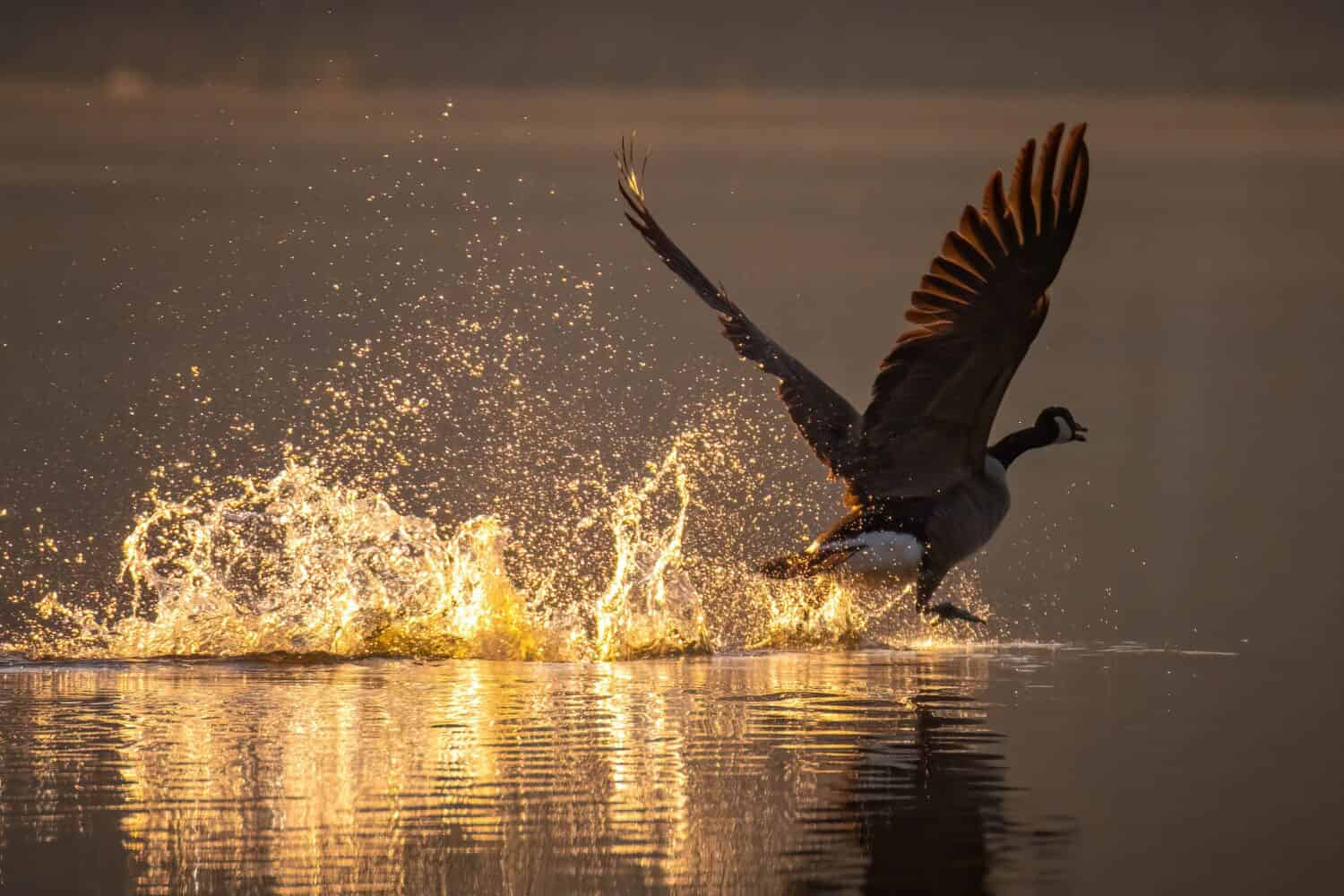Chances are good that you’ve heard someone say the phrase “wild goose chase.” The phrase is so common that we often say it without even thinking about what it means. Today, we talk about what this phrase means, why people say it, and other interesting facts about “a wild goose chase.”
What Does “A Wild Goose Chase” Mean?
First, let’s talk about the meaning of the phrase. According to the Merriam-Webster dictionary, a “wild goose chase” is a noun, and it means a complicated or lengthy and usually unsuccessful search or pursuit.
Over at Dictionary.com, they consider a wild goose chase to be (1) an absurd or wild search for something unattainable or nonexistent and (2) any senseless pursuit of an end, an object, or a hopeless enterprise.
At Collins Dictionary, they say it’s any search, endeavor, or pursuit that is regarded as being as futile as trying and failing to catch a goose by chasing it.
The Cambridge dictionary brings it one step further and calls it a search that’s completely unsuccessful and a waste of time due to the fact that the person or thing does not exist or is located somewhere else.
Many people say they’re on a wild goose chase when they are trying to find something that is hard to spot but continue to believe they will find it. Others may say they’re on a wild goose chase because they’ve been instructed to find something, and they know it’s pointless because what they search for simply doesn’t exist.
“A Wild Goose Chase” Used in a Sentence
Here are some examples of ways to use the phrase in a sentence:
1. My boss sent me on a wild goose chase to find the keys for the office.
2. The convict escaped from prison and led the police on a wild goose chase through the city.
3. We’ve been on a wild goose chase for years.
4. He spent hours on a wild goose chase, traveling from store to store as he searched for an old record that no longer existed.
5. The kids led me on a wild goose chase for their missing school books.
Origins of a Wild Goose Chase

The origins of the phrase “a wild goose chase” actually go back to
horse
racing.
©Lukas Gojda/Shutterstock.com
There are several theories about why “a wild goose chase” became a common phrase, and different sources point to different origins, including horse racing and William Shakespeare.
Horse Racing
One popular origin has nothing to do with a goose. Instead, it’s about a completely different animal: the horse.
Back in the old days of horse racing, one particular race was called the “wild goose chase.” On a track, a group of horses would follow behind a main rider that would travel at a predetermined distance. This rider would be close enough to encourage the horses to chase, but far enough that they could never catch up. On top of that, the racing horses would closely resemble the v-formation of geese.
Shakespeare
Many people believe William Shakespeare was the first to coin the phrase in his famous play Romeo and Juliet. This context also had to do with horses.
During Act 2 of Scene 4, Mercutio is losing a battle of wits against Romeo. Romeo says that if Mercutio gives up, then he will declare himself the winner.
Romeo then taunts Mercutio with a horse reference, by saying “Switch and spurs, switch and spurs, or I’ll cry a match.” Mercutio responds with a horse reference of his own, by saying, “Nay, if thy wits run the wild-goose chase, I have done, for thou hast more of the wild-goose in one of thy wits than, I am sure, I have in my whole five.”
In this case, he’s referring to the popular horse race mentioned above. This type of race was famous in England at that time. In essence, Mercutio is saying he’s giving up since Romeo had the better of him from the start.
Synonyms for a Wild Goose Chase
There are many other funny words and phrases that are similar to “a wild goose chase.” Chances are you’ve heard a few of these before, including:
- Lost cause
- Bootless errand
- Fool’s errand
- Merry chase
- Red herring
- Vain attempt
- Wasted labor
- Waste of time
- Snipe hunt
Should You Ever Really Chase a Goose?

Some geese flap their wings as a sign of aggression, so take that as a warning.
©Erni/Shutterstock.com
Geese are quick birds, and they can maneuver well and get away from you if you chase them. However, you could likely catch a goose if you tried hard enough. With that said, it’s not a good idea because geese can be defensive creatures when they’re threatened.
On top of defending themselves, geese are also incredibly territorial. They prefer to have their own space, and they don’t want to share it with anyone else except other geese. There’s also a good chance that they are protecting their eggs or their young babies. Unlike many other birds, geese build their nests on the ground, so anyone that comes close is instantly a threat.
They won’t attack you immediately. Instead, they’ll warn you by hissing, honking, and screaming, and you should take that as a fair warning. They are particularly hostile during mating season. If you live in an urban setting with a park, there’s a good chance you’ll run across them. Geese build their nests in urban settings because there’s enough food and supplies around to keep them happy and safe.
Additionally, humans should always respect wildlife and avoid disturbing animals in their habitats.
How Geese Attack
Keep in mind that geese attacks are not common, but if you pursue a literal wild goose chase, a gaggle of geese may become so angry that they fight back. They’ll try to use their beak to bite or peck at you, and they can cause serious harm. They can also hit you with their large, strong wings. They can’t kill you, but they’ll hurt you. It’s incredibly difficult to defend against a flurry of feet, wings, and beaks.
Conclusion
“A wild goose chase” is an interesting phrase used often in many different circumstances. Next time someone utters the phrase, you’ll be armed with a little Shakespeare trivia.
Thank you for reading! Have some feedback for us? Contact the AZ Animals editorial team.








